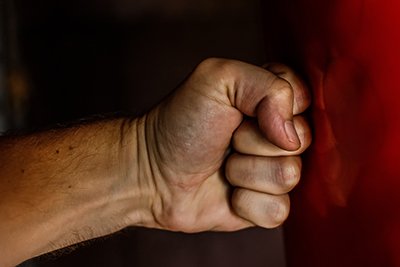
Anti-domestic violence campaigners say there is no substitute for the court-ordered group therapy, where abusers are confronted by peers.
The two-hour meetings, which are normally attended by between six and 20 men over 26 weeks, were shut down last month.
The forums are where emotions often overflow, tears are shed and anger vented within a controlled atmosphere, says Men’s Referral Service CEO Jacqui Watt.
MRS has been operating nationally for more than 25 years and notwithstanding an accompanying 24-hour helpline, it’s the behavioural sessions that have a significant impact.
“We are extremely concerned there are men in the process of thinking about using family violence, some of whom may have been confronted within the group, about their attitude towards women and their attitude towards the family,” Ms Watt says.
“They have been cut off from that source of improvement and it is worrying to us.”
MRS has moved to one-on-one sessions, either over the phone or through applications like Skype.
It’s unclear if they will be accepted by the courts as an appropriate substitute. If not, wait times for group meetings, which can already be six months, may have to be extended.
Almost three-quarters of the men who attend a behavioural group are under court order.
“Ten years ago, about 20 percent of men who attended were coming through a court-mandated program but that has turned on its head,” Ms Watt says.
“Now up to 70 to 80 percent of men in a group are likely to be coming through a court-mandated process.
Prominent Brisbane criminal lawyer and former Queensland Law Society president Bill Potts described the dilema as a “perfect storm” and said he held grave concerns for the safety of women.
He said criminogenic issues that spark domestic violence such as depression, financial stress and excessive drinking would magnify during lockdown.
And without adequate counselling sessions they would be allowed to fester with dire consequences.
“Many are in pressure cooker situations with loss of job, income and depression and a parent may be withholding access to the children through fear of passing or catching the virus,” Mr Potts says.
“Those issues are not being addressed through counselling and the problem of domestic violence appears to be getting far worse and it is a significant issue.
He says online counselling has limitations and some in desperate need of rehabilitation don’t have access to the technology.
But even online or over the phone counselling is problematic, says Griffith University associate professor Jennifer Boddy.
“It’s very difficult to manage what is happening in the background; if they drop off the line or if something in the conversation triggers them, we have no way of knowing if people in the household are safe,” Ms Boddy, a senior lecturer in Social Work, says.
“It’s also more difficult to determine or manage if someone has been drinking if they do not come in for a group program.”
Ms Boddy says the men’s attendance at behavioural group sessions also provides a window of opportunity for women to either seek help or get precious alone time and that was now not occurring.
“Their partners, who have often been victims of the violence, have two hours to be safe and free to go about their life,” she says.
“So there is a whole range of issues that arise when you don’t have face-to-face meetings on a weekly basis.”
Domestic Violence NSW co-ordinator Renata Field says they’ve experienced an increase in calls across the board since the coronavirus lockdown took effect.
She says upskilling as well as improved equipment and training is desperately needed to deal with an unprecedented situation.
“It’s becoming harder for people to make contact because of isolation and we are worried because that means there are more women at risk.”
Domestic Violence Contacts & Links
NSW Domestic Violence (1800 65 64 63)
Men’s Referral Service (1300 766 491) for men, or friends and family of men using violenceI
1800 RESPECT (1800 737 732)
Lifeline 13 11 14



